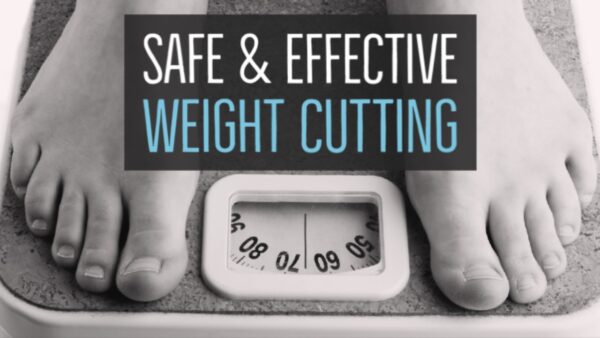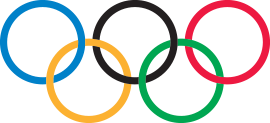By PhD Candidate & IFMA Athlete Viktorie Bulínová
Our goal as coaches, fighters, and parents is to arouse interest in sports and create a positive relationship with them. Too much pressure on body weight manipulation can make them dislike the sport, not to mention the health risks of improper body weight manipulation. Let’s educate fighters about nutrition and set the right role models (instead of a “he who loses more is a bigger fighter” type of fighter, let’s set a role model who takes a responsible approach to training).
Why athletes weight cut
As we all know, in combat sports, fighters are divided by body weight into weight classes. In order to meet the weight class limit, fighters manipulate their body weight. There are several reasons why fighters manipulate their body weight.
- Sport Identity – fighters often believe that cutting weight is part of a professional attitude.
- Mental Diversion – for many fighters, cutting weight is a coping strategy where they use cutting to cope with negative feelings associated with an upcoming match.
- Mental Advantage- one of the most common reasons is a feeling of superiority, the fighter wants to feel bigger and stronger than his opponent (Reale, 2023).
Understanding the science
Body weight manipulation can be divided into 3 parts. Chronic weight loss (CWL), acute/rapid weight loss (RWL), and rapid weight gain (RWG). In CWL, through the creation of an energy deficit (energy intake is less than energy expenditure), body weight is lost from fat and muscle tissue. CWL is used several weeks before a fight as part of a fight camp. Next comes RWL, which involves acute changes in body weight within the fight week. Glycogen content, body water, and gut contents are manipulated. RWL strategies include: reducing the fiber intake in the diet, reducing sodium intake, reducing carbohydrates, increasing (and decreasing) water intake, induced sweating, and consuming low-volume foods. The last phase is RWG, which is when the body is rehydrated and nutrients (especially carbohydrates) are replenished (Petterson & Berg, 2014; Jetton, 2013; Reale, 2018).
Health risks
First of all, let’s look at the health risks associated with CWL. With long-term large energy deficits, where we have a higher energy expenditure than intake, there is a risk of developing Relative Energy Deficiency Syndrome in Sport (RED-s). RED-s is characterized by negative effects on the athlete’s health and performance. Health problems include menstrual (absence of cycle or irregular cycle – this can become a very serious health issue for women), endocrine, metabolic (decrease in resting metabolic rate), hematological, psychological (depression, loss of motivation), cardiovascular (reduced blood pressure), gastrointestinal (bloating, digestive problems), and immunological (frequent illness) dysfunctions. In terms of training adaptation and athlete performance, there is reduced endurance capacity, increased risk of injury, reduced training adherence, reduced coordination, reduced restinglycogen stores, suppressed muscle protein synthesis, and a decrease in muscle strength (Mountjoy et al., 2023). Case studies by Kasper (2019) and Langan-Evans (2020) describe the occurrence of RED-s syndrome in combat athletes during preparation for a match.

RWL carries health risks that include elevated cortisol levels, hyponatremia, impaired immune function, or elevated creatinine levels indicating acute kidney injury (Kasper,2019). The association between the amount of weight reduction using RWL strategies with an increase in serum creatinine levels has been demonstrated by a systematic review by Lakievic (2021), whereby dehydration of the body is further associated with a reduction in plasma volume, leading to an increase in blood viscosity, which is reflected in an increased burden on the cardiovascular system, increasing the risk of cardiovascular problems. Furthermore, the negative effect of RWL on the mental health of the athlete is shown. In the short term, fighters may experience a decline in memory, concentration, and self-esteem and an increase in confusion, depression, and aggression (Pettersson, 2013; Khodaee, 2015). Dehydration within RWL has a negative impact on the development of concussion, as the structure of the cerebral cortex is altered (reduced cerebrospinal fluid volume means a reduced ability to withstand the forces generated by impact) and reaction abilities are negatively affected (Clark & Sirois, 2020). This particular negative aspect should be emphasized to trainers and athletes etc. because it is significantly more dangerous in children – whose central brain system is still developing!
Recommendations for amateur fighters
- Plan your diet for the match well in advance. Rate of weight reduction 0.5-1%/week.
- Do not go below the amount of adipose tissue for men 7-16% percentage of body fat (pbf) and women 17-26% pbf.
- Do not lose more than 3% of body weight in a match week for an amateur match.
- RWL strategies with minimal negative impact on performance: reducing the fiber intake in the diet, reducing sodium intake, consuming low-volume foods, and light-induced sweating.
- Kids shouldn’t cut weight on fights at all. They are at risk of stunting developmental growth and there is an increased risk of brain damage.
References:
Mountjoy M, Ackerman KE, Bailey DM, et al 2023 International Olympic Committee’s (IOC) consensus statement on Relative Energy Deficiency in Sport (REDs) British Journal of Sports Medicine 2023;57:1073-1097.
KASPER, Andreas M., Ben CRIGHTON, Carl LANGAN-EVANS, Philip RILEY, Asheesh SHARMA, Graeme L. CLOSE a James P. MORTON. Case Study: Extreme Weight Making Causes Relative Energy Deficiency, Dehydration, and Acute Kidney Injury in a Male Mixed Martial Arts Athlete. International Journal of Sport Nutrition [online]. 2019, 29(3), 331-338 [cit. 2021-02-05]. DOI: 10.1123/ijsnem.2018-0029. ISSN 1526484X
LANGAN-EVANS Carl, m. GERMAINE, et al. The physiological and psychological consequences of low energy availability in a male combat sports athlete. Medicine and science in sport and exercise [online] 2020, 8 September DOI: 10.1249/MSS.0000000000002519
Reale, R., Slater, G., & Burke, L. M. (2017). Acute-Weight-Loss Strategies for Combat Sports and Applications to Olympic Success. International Journal of Sports Physiology and Performance, 12(2), 142-151. Retrieved Oct 11, 2023, from https://doi.org/10.1123/ijspp.2016-0211
PETTERSSON, Stefan, Marianne PIPPING, Christiana BERG. Practies of Weight Regulation Among Elite Athlethes in Combat Sports: A Matter of Mental Advantage? In. Journal of Athletic Training: Jan/Feb. [online]. 2013. [cit. 2021-02-05]. Dostupné z: https://www.natajournals.org/doi/full/10.4085/1062-6050-48.1.04
JETTON, Adam, Marcus, LAWRENCE, Marco, MEUCCI, Tracie, HAINES a kol. Dehydration and Acute Weight Gain jn Mixed Martial Arts Fighters Before Competition. Journal of Strength and Conditioning [online]. [cit. 2020-19-01]. Research: May 2013 – Volume 27 – Issue 5 – p 1322–1326 doi: 10.1519/JSC.0b013e31828a1e91
REALE, Reid. Acute weigt management in combat sports: Pre weigh-in weight loss, post weight-in recovery and competition nutriton srategies. Sports Science Exchange [online] 2018, Vol.29, No. 183, 1-6. [cit. 2022-11-04]
LAKIEVIC, N, A. PAOLI R. ROKLICER, et al. Effects of Rapid Weight Loss on Kidney Function in Combat Sport Athletes. Medicina (Kaunas). 2021;57(6):551. Published 2021 May 31. doi:10.3390/medicina57060551
KHODAEE, Morteza, Lucianne OLEWINSKI, Shadgam BABAK, Robert KININGHAM. Rapid Weight Loss in Sports with Weight Classes. In: jourlnals.iww.com [online]. 2015 [cit. 2021-02-05]. Dostupné z: https://journals.lww.com/acsmcsmr/Fulltext/2015/11000/Rapid_Weight_Loss_in_Sports_with_Weight_Classes.9.aspx
James E Clark, & Emily Sirois. (2020). The possible role of hydration in concussions and long-term symptoms of concussion for athletes. A review of the evidence. Journal of Concussion, 4. https://doi.org/10.1177/2059700220939404


